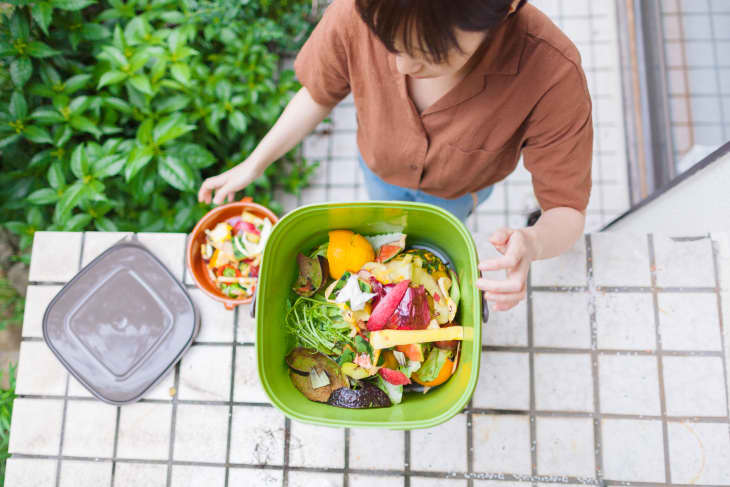Here’s What To Do With Your Compost Pile If You’re Moving, According to an Expert

Composting is a great way for eco-conscious homeowners and gardening enthusiasts to give more life to their kitchen scraps. There are several ways to go about composting — you can go low-tech and create a pile somewhere in your yard or opt to get a bit more fancy with things by using an enclosed tumbler — so that your garden can reap the benefits of making your own nutrient-dense mix. (They don’t call it black gold for nothing.)
And while you may be proud of the steaming pile of plant food you have going in your backyard, the people deciding whether or not to turn your home into their own may be decidedly less enthusiastic about things. That’s why Kristin Halton, founder and real estate agent with The Halton Group, Douglas Elliman, says you’re likely going to be better off making your compost pile scarce when it comes time to list your house for sale.
Waste not, want not.
Chances are that you’re already pretty conscientious about waste if you’re composting, which is why the idea of having to get rid of your compost may feel a little heartbreaking. However, Halton says you have a few really good options for getting rid of your decaying scraps. If your pile has already fully processed and is ready to go, she says you should put it to good use around your property.
“Turn the compost into mulch, distributing evenly throughout the yard,” she says. “This will help the grass absorb higher levels of the nutrients it requires — creating a more even and healthy lawn.”
A healthy lawn can offer more than just an eye-catching landscape; it can also signal to buyers that your home was well maintained during the time you lived there.
Add some pops of color around the house.
Curb appeal is important when it comes to listing your home, which is why many people add a few potted plants to their yard to brighten up the space. Halton says this is a great opportunity for getting rid of your excess compost. “Utilize the compost as additional soil for your potted plants,” she says. “This will provide minerals and sustenance to the plants, allowing them to continue growing at a healthier and faster rate.”
Bury whatever is left.
There’s always a chance that you’ll be ready to go before your compost is. If you still have partially decomposed scraps or materials that aren’t broken down enough to use as mulch or soil you can dispose of them by burying them in your existing garden beds or other spots in the yard.
This will not only help you hide your remaining compost pile, but it will also give the next homeowners a jump start on their own gardening projects, since your leftover scraps will continue to add nutrients to the soil where they have been buried.